Prof. Abdul Fatah El-Awaisi is widely recognized in academic fields and moslem communities, particularly within Al-Quds studies and international political relations. A Palestinian academic born in Palestine, his works include strategic studies, political science, and Islamic thought, offering a multidimensional approach to the liberation of Al-Aqsa Mosque.
His seminal work, “Strategic Planning for the Liberation of Masjid Al-Aqsa”, represents not only an academic contribution but a call to action for Muslim societies to reconceptualize the Palestinian struggle through structured scholarship, long-term vision, and strategic foresight. Through his teaching, writings, and public advocacy, Prof. El-Awaisi has inspired scholars, students, and civil society actors worldwide.
His central message is clear: liberation begins in the mind. For Prof. El-Awaisi, the discourse on Al-Quds must transition from reactive emotionalism to strategic and knowledge-based engagement. He stated:
“Without knowledge-based leadership, the ummah will remain in a cycle of reaction and stagnation. Understanding is the catalyst for transformation.”
Also Read: When the Sumud Flotilla Didn’t Reach Gaza
Indonesia’s Strategic Role in the Future of Al-Quds
Prof. Abdul Fatah El-Awaisi has repeatedly highlighted Indonesia’s unique and strategic potential in advancing the global Islamic intellectual movement, particularly in relation to the liberation of Al-Quds. As the world’s most populous Muslim-majority nation, Indonesia holds a distinct combination of geopolitical influence, demographic strength, and spiritual vitality that can be channeled to support the Palestinian cause.
He identifies five interrelated strategic dimensions through which Indonesia can contribute meaningfully to the future of Al-Quds:
1. Intellectual Leadership
Also Read: Noble Effort in Caring Senior Citizen; Best Practices from Indonesia to the World
“Indonesia is well-positioned to lead the intellectual front for Al-Quds’ liberation,” Prof. El-Awaisi affirms, emphasizing the country’s expanding academic landscape, dynamic higher education institutions, and increasing engagement in global scholarly networks.
2. Spiritual Resonance
He describes Indonesia as a blessed nation, emanating from its connection to Masjid Al-Aqsa:
“There is a metaphysical connection between Al-Quds and Indonesia. This bond, rooted in faith and shared destiny, must be nurtured.”
Also Read: Open Letter to President Prabowo Subianto: Never Recognize the Sovereignty of Zionist Israel
This spiritual alignment, he argues, is both a source of inspiration and a foundation for long-term commitment to the cause.
3. Youth Engagement
Viewing Indonesia’s large youth population as a strategic asset, Prof. El-Awaisi states:
“When young Indonesians internalize the historical and strategic importance of Al-Quds, they can become key agents of change.”
Also Read: Measuring the Reality of the Israel-Palestine Two-State Solution
He advocates for educational and civic programs that empower the youth to contribute to the global movement through informed activism and leadership.
4. Knowledge Ecosystem
Prof. El-Awaisi envisions Indonesia as a future global hub of Islamic knowledge production and dissemination. He argues:
“If Indonesia harmonizes its religious identity with academic excellence, it can offer a model of strategic Islamic leadership to the ummah.”
Also Read: Tunisian Man Donates Boat to Global Sumud Flotilla, Citing “Gaza Is Worth More Than Anything”
This vision involves cultivating research institutions, think tanks, and policy frameworks aligned with Islamic principles and global best practices.
5. Alignment with the Prophetic Methodology
Drawing from the Seerah (biography of the Prophet Muhammad), Prof. El-Awaisi outlines a strategic three-phase model for liberation that Indonesia could exemplify in the modern era: intellectual and spiritual preparation, political organization and unification, and development of defensive capabilities and protection of the ummah
Diagnosing the Intellectual Crisis of the Muslim World
Also Read: The Sunnah of Eclipse Prayer: A Step-by-Step Guide
Prof. Abdul Fatah El-Awaisi contends that the Muslim ummah is grappling with a profound intellectual crisis, one that must be critically addressed before any meaningful progress toward the liberation of Al-Quds can take shape. He identifies three interrelated dimensions of this crisis:
1. Mental Colonization
The enduring legacy of colonialism has left the ummah burdened with an inherited inferiority complex and an overreliance on external paradigms. This intellectual subjugation hampers autonomous thought and strategic self-determination.
2. Crisis of Knowledge Production
Also Read: Reflecting on Road Engineering: An Effort Toward Driving Safety
Islamic societies face a structural failure to produce knowledge that is contextually grounded, transformative, and action-oriented. Much of contemporary scholarship remains disconnected from the realities and aspirations of the Muslim world.
3. Ideological Disorientation
A fragmented sense of identity, coupled with the absence of a unifying strategic vision, has led to ideological confusion and vulnerability to competing narratives.
Prof. El-Awaisi underscores that this intellectual stagnation is not merely an academic concern but a civilizational emergency. He affirms:
Also Read: Stop the War Now
“Until we decolonize our minds and reclaim our narrative, we will continue to depend on others to define our reality.”
According to him, the path to liberation must begin by restoring intellectual sovereignty, through a renaissance of thought, rooted in Islamic tradition and oriented toward future transformation.
The Power of Knowledge and Strategic Language
At the heart of Prof. El-Awaisi’s message lies a call to return to the Qur’anic imperative of knowledge. He frequently invokes the first revealed command, “Read!” (Iqra’) as a perpetual reminder that genuine transformation begins with intellectual awakening and critical consciousness.
Also Read: From Indonesia’s Zero Point, Three Muslim Women Raise a Flag and a Call for Humanity for Palestine
Central to his intellectual project is the reclamation of language as a tool of liberation. Prof. El-Awaisi emphasizes the urgent need to revive Al-Quds-centric terminology within Muslim discourse, recognizing that the words we use shape the frameworks through which we perceive and engage with the world. He advocates for:
- Referring to Jerusalem as Al-Quds Al-Sharif to restore its spiritual and civilizational stature in the Muslim imagination.
- Positioning Masjid Al-Aqsa as the symbolic and strategic epicenter of the Palestinian cause and broader Muslim concerns.
- Reintegrating historical reference points, such as the ‘Umar Covenant (Al-‘Uhdah Al-‘Umariyyah), as enduring models of justice, pluralism, and coexistence.
He affirms “Our vocabulary must reflect our vision. Language is the vessel of liberation.”
For Prof. El-Awaisi, the reconfiguration of language is not a matter of semantics, but a foundational act of reclaiming agency and reorienting the ummah toward purposeful, knowledge-based struggle.
The Barakah Circle Theory: A Spiritual Framework
One of Prof. El-Awaisi’s most original contributions is his Barakah Circle Theory, which positions Al-Quds as a spiritual epicenter of blessings whose influence extends across continents.
Also Read: The Virtues of a Journey to Al-Aqsa Mosque
“The struggle for Al-Quds is not only a geopolitical concern; it is a source of spiritual renewal. Nations that connect with it tap into a divine energy of transformation.”
This concept calls on Muslims to move beyond viewing Al-Quds solely as a political flashpoint, and instead, to embrace it as a source of collective healing, unity, and purpose.
Reclaiming Al-Quds Through Strategic Vision
Prof. El-Awaisi’s legacy is not only in the content of his ideas but in the urgency of his call: the ummah must think long-term, act collectively, and be guided by strategic, principled knowledge.
His vision aligns intellectual awakening with prophetic tradition, emphasizing that the future of Al-Quds will be shaped not by emotion alone, but by foresight, discipline, and unity.
As he concludes in many of his lectures:
“The Prophet laid the intellectual foundation. It is our responsibility to build upon it, with wisdom, courage, and conviction.” []
Mi’raj News Agency (MINA)





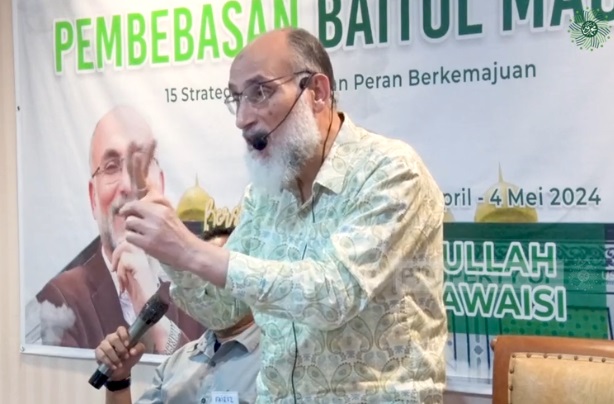

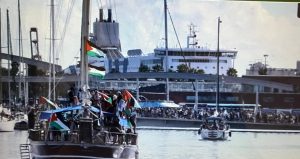




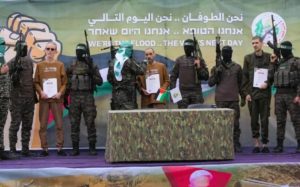


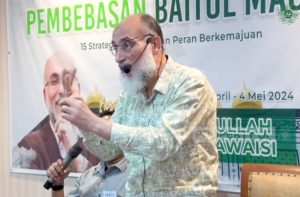
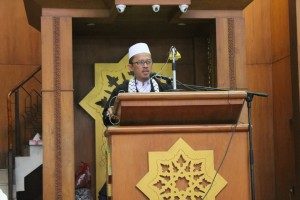
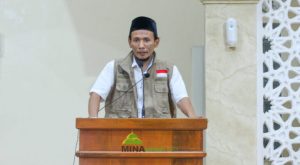




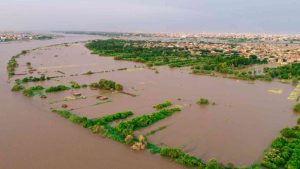
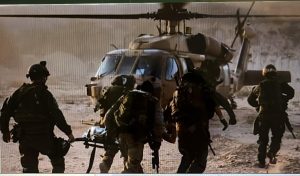


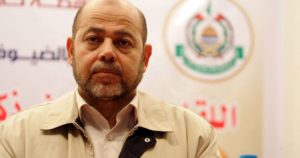
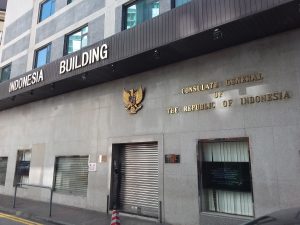
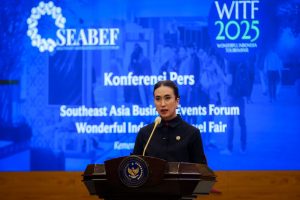
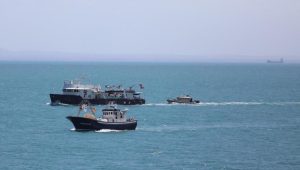
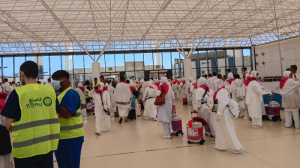



 Mina Indonesia
Mina Indonesia Mina Arabic
Mina Arabic